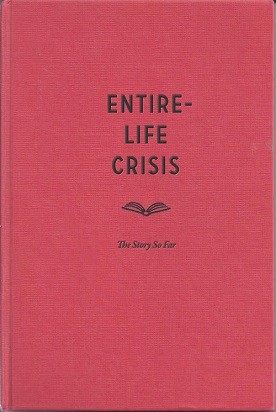truth about crisis
 ==
==
There is loose talk about obsolescence and the rot at the core of our society and institutions and business. We speak apocalyptically about every systemic crisis. It stretches credibility to extend each individual systemic indictment to the entire structure of business, government, justice, and institutions. Every debatable action does not demand some mandate to destroy the entire system.
We seem obsessed with crisis. What I mean by that is headlines espouse some crisis every day, almost every day some business, some department, some team, is facing a crisis, or we are even encouraged to think our own life is facing a crisis.
 But here is the truth about a crisis. Crises do not render the structures created by time obsolete. In fact, time and historical gravity creates an extremely solid structure built upon deep, embedded, memory (and comfort). A crisis, or the perception of a crisis, may cloak this truth, but structures are structures and structures are fairly resistant to wholesale change. And even when the structure does change it is either very slowly or as the result of an absolute catastrophe which shakes the foundation on a tectonic plate level. That said. Even after the worst of worst catastrophes, memory is a stubborn sonuvabitch. Taleb has written some thoughts on this. Regardless. I would suggest we are in this weird place where non-crisis are viewed as real crisis events and real crisis events, even when observably catastrophic, are viewed with a sense of disbelief.
But here is the truth about a crisis. Crises do not render the structures created by time obsolete. In fact, time and historical gravity creates an extremely solid structure built upon deep, embedded, memory (and comfort). A crisis, or the perception of a crisis, may cloak this truth, but structures are structures and structures are fairly resistant to wholesale change. And even when the structure does change it is either very slowly or as the result of an absolute catastrophe which shakes the foundation on a tectonic plate level. That said. Even after the worst of worst catastrophes, memory is a stubborn sonuvabitch. Taleb has written some thoughts on this. Regardless. I would suggest we are in this weird place where non-crisis are viewed as real crisis events and real crisis events, even when observably catastrophic, are viewed with a sense of disbelief.
Which leads me to disbelief is a characteristic of a society in crisis.
It would certainly be easy to blame technology because it certainly accelerates and exploits any crisis at hand. Simultaneously, it is also not difficult to envision technology playing a significant role in liberating us from our crisis mentality. So let me state the obvious – belief, or disbelief, is in the purview of humans. And if you agree with that, well, we are in a world of hurt. Let’s call it a society in crisis. The education system seems incapable of producing a level of skills, roles, and character/temperament to weave a social fabric so that effective, positive, whole systems cannot come undone. I believe this is called a capability crisis which often brings with it a true existential crisis and a society wide identity crisis. Simplistically, a capability crisis leads to disbelief in what one sees with their own eyes. Yeah. That’s sounds crazy, but it is happening in the here and now.
“I don’t think <sic> could have lived any other way.
I don’t think he wanted to. He was a crisis addict, a performance addict, a shameless pulpit orator and a scene-grabber. He was a delusional enchanter and a persuader who saw himself as God’s golden boy, and he wrecked a lot of people’s lives.”
John Le Carre

Which leads me to suggest crisis always suggests failure (at least in today’s world).
The corollary to that is to admit failure is to admit loss of control. The counterweight to that, in a society in crisis, is rationalization and ‘rational thinking confused with common sense.’ The problem is rational tends to subjugate imagination to the ‘non-realists’ and, as a result, we are perpetually either on the edge of a crisis, in a crisis, or artificially flush with success. This cycle creates vague expectations, despite the constant call of crisis, that all will be all right ‘tomorrow.’ And if it isn’t ‘all right’ there will always be another crisis to manifest itself before our eyes.
Anyway. It was Chekhov who said any idiot can face a crisis. Business seems intent on creating a generation of idiots by creating false crisis after false crisis, every day, and in every industry. Politicians certainly don’t help, 24/7 media certainly doesn’t help, but inevitably a business is a business and can manage its own narrative within itself. And the truth is most crisis are not crisis – particularly in a business. So, when businesses rally around the crisis de jour it’s just simply a bunch of idiots scampering around all the while losing focus on what is truly important; the future. And maybe that is where the ultimate crisis resides. In a lack of vision of the future. Specifically, not what a future business looks like, but rather what future do we want to create and how can our business thrive within that future. The crisis is a lack of understanding of the nuance with regard to what I just stated. Ponder.


Leave a Comment